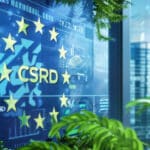Benchmark Gensuite, a leading provider of cloud-based Environmental, Social, and Governance (ESG) enterprise software solutions, recently convened ESG experts to discuss trends in the Asia-Pacific (APAC) region’s evolving matrix of ESG disclosure regulations. Featured experts honed in on the latest developments in Asia’s mature and emerging regulatory frameworks, provided outlooks for the new year, and offered unique insight into best practices for achieving compliance for domestic companies and multinationals with operations in the region.
“The global ESG regulatory landscape continues to unfold quickly with regulatory and market drivers in Asia-Pacific building on what industry has seen in Europe and the US,” said Benchmark Chief Market Strategy Officer Donavan Hornsby. “Asia’s momentum signals the continuing convergence of mandatory and voluntary ESG disclosure frameworks. And, considering the size and sway of the region’s economies, it’s critically important that global business leaders shore-up their ESG data management, performance measurement, and assured disclosure practices.”
Featured guests at this event included Elaine Ye, Senior Expert Services Manager, Enhesa; Shankar Rajagopalan, ESG Consultant; and Gary Tang, General Manager, EFC环.
Ye emphasized that, while there may be some fragmentation across jurisdictions and financial markets, there are common trends including stock exchange-led reporting requirements, pressure from regulators and investors for improved data quality, and a mounting focus on climate-related disclosures.
“The region’s ESG reporting is being driven by governments’ mandates for publicly-listed companies to report various ESG data, including climate reporting, GHG emissions and sustainability metrics,” explained Ye. “While not all markets have created ESG disclosure requirements, emerging regulatory frameworks are impacting both supply chain management and non-publicly listed companies as well.”
Guests sought to underscore that while APAC countries may be at different stages of ‘voluntary’ versus ‘mandated’ disclosure, the region’s regulators are evidently united over the urgency to craft compulsory, standardized disclosure to bring certainty to publicly-traded companies and their private partners. Additionally, these actions will accommodate investors’ needs for more comparable and decision-useful corporate ESG disclosures and otherwise support the continued development of Asia’s booming sustainable finance sector.
“China’s beginning to see regulations catch up with what public companies have been preparing for since CSR requirements in 2008,” explained Tang, “Public firms are seeing the business value and impact of carbon-neutral and green financing mandates set up by both the State Council and Finance Supervision Agency. Their ESG frameworks are similar to those of Europe, US and Hong Kong environmental requirements too.”
Common across the region are the secondary effects that Asian countries’ ESG disclosure regulations for listed companies have on the conduct of multinationals and private firms active in their jurisdictions. And as Rajagopalan explained, India is no exception.
“India is seeing country-wide efforts to reform regulations to both emphasize ESG reporting and respond to investors’ demands in the region,” said Rajagopalan, “While revised business responsibility reporting will be required from the top 1,000 public firms, small- and medium-sized enterprises are feeling the secondary effect via supply chain demands and expected future regulatory disclosure requirements.”
The sixth session of Benchmark’s ESG Executive Collaboration Forum series, a recording of which is available [link] here, sought to distill the complexity and dynamism of the region’s ESG information ecosystem into a handful of uniform themes to guide business leaders’ strategies and actions. One such theme is the considerable extent to which the region’s new and emerging mandatory disclosure rules reflect the metrics and methodologies enshrined in the GRI, TCFD, SASB and other leading voluntary frameworks.
“This discussion really sheds light on many trends we’ve tracked in both the U.S. and E.U. ESG space,” said Hornsby. “[That] companies throughout APAC are facing similar challenges in fulfilling various disclosure mandates yet understand the value of cohesive, interpretable and cross-functional ESG data.”
Benchmark appreciates the evolving nature of the APAC region’s trends towards tracking and reporting ESG indicators. To that end, Benchmark encourages interested parties to join the ESG Executive Collaboration Forum LinkedIn group for additional discussion on matters examined in the webinar. Additional resources on best practices and digital solutions for ESG data management and reporting can be found here, as well as a full Benchmark event calendar here.
About Benchmark Gensuite®
Benchmark Gensuite® enables companies to implement robust, cross-functional digital systems for EHS, Sustainability, and ESG Reporting through a unified digital platform—locally, globally and across diverse operating profiles.
With intuitive, best-practice-based process functionality, flexible configurations, and powerful extensions, the Benchmark Gensuite® platform has helped companies worldwide manage their EHS, Sustainability; Quality; Operational Risk and Compliance; Product Stewardship, and Supply Chain Risks for over two decades; and now organically integrated with cutting-edge ESG disclosure reporting and management solutions. Join over 3 million users that trust Benchmark Gensuite® with their software system needs and benefit from rapid deployment and adoption, immediate return on investment (ROI), service excellence, and collaborative innovation.
Jen Redden
Benchmark Gensuite
(513)-774-1000
email us here
Visit us on social media:
Facebook
Twitter
LinkedIn
Instagram
YouTube

